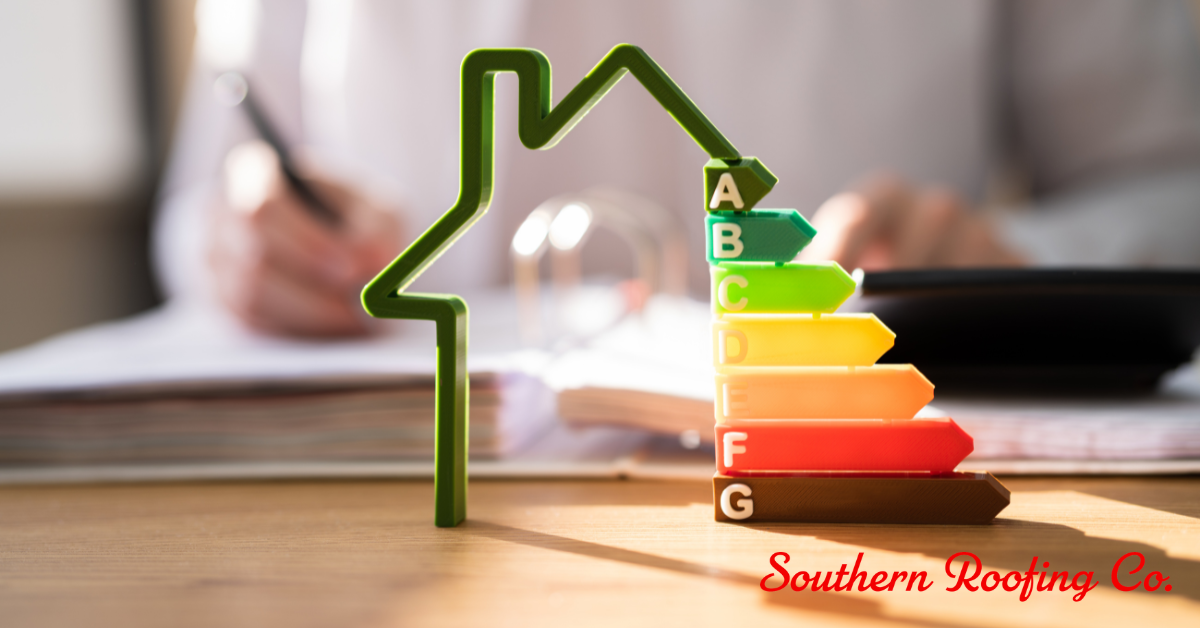
In today's environmentally conscious world, energy efficiency is not just a buzzword but a key consideration for homeowners and business owners alike. The roof, often overlooked, plays a pivotal role in a building's overall energy efficiency. Whether it's commercial roofing or residential roofing, the materials, design, and installation quality directly impact your property’s thermal performance and, consequently, its energy consumption. This blog post will dive into the crucial role roofing plays in enhancing energy efficiency, highlighting how a professional roofing company like Southern Roofing Co. can help you maximize comfort while minimizing energy costs. Particularly for those in Middle Tennessee, understanding this aspect of roofing is essential due to the region's diverse weather patterns.
Understanding Energy Efficiency in Roofing
The Science of Heat Transfer
Roofs play a critical role in regulating indoor temperature by controlling heat transfer. In summer, roofs can absorb heat from the sun, increasing indoor temperatures and forcing air conditioners to work harder. In winter, poorly insulated roofs allow heat to escape, leading to higher heating costs. The right roofing system minimizes this heat transfer, maintaining a more consistent and comfortable indoor environment while reducing energy usage.
Materials Matter
The energy efficiency of a roof is largely determined by the materials used. Traditional asphalt shingles absorb a lot of heat, while metal roofing reflects more sunlight and cools down quickly at night. Materials like clay, slate, and certain composite shingles provide excellent thermal mass, helping regulate indoor temperatures by absorbing heat during the day and releasing it at night.
Technological Advances in Roofing for Energy Efficiency
Cool Roofing Technology
Cool roofs are designed with materials that reflect more sunlight and absorb less heat than standard roofing materials. They can be made of highly reflective paint, a sheet covering, or highly reflective tiles or shingles. This technology significantly reduces cooling costs and mitigates urban heat island effects, making it beneficial for both individual buildings and communities.
Solar Roofing Solutions
Solar roofing integrates solar technology directly into the roofing material, such as solar shingles or tiles, or involves the installation of solar panels atop the existing roofing structure. These systems not only protect the building from the elements but also generate electricity, potentially significantly reducing or even eliminating electricity costs.
The Impact of Roof Color and Coating
Reflective Coatings
Reflective roof coatings are applied to roofs to increase their reflectivity, reducing temperatures on the roof surface and within the building. These coatings are especially useful in hot climates, where they can reduce peak cooling demand by 10-15%, according to the U.S. Department of Energy.
Color Considerations
The color of your roofing material can affect your building's internal temperature. Dark colors absorb more heat, while lighter colors reflect sunlight, keeping your building cooler. Choosing the right color for your climate can contribute to the energy efficiency of your roofing system.
Insulation and Ventilation: A Dual Approach
Proper Insulation Techniques
Roof insulation plays a key role in reducing heat transfer between the building and the outside environment. Options like spray foam, rigid foam boards, and batt insulation help keep warm air inside during the winter and outside during the summer, improving the energy efficiency of heating and cooling systems.
Ventilation Systems
Adequate roof ventilation removes excess heat and moisture from the attic or roof space, preventing heat buildup in the summer and moisture accumulation in the winter. Proper ventilation ensures a cooler roof and attic in hot weather and prevents ice dams in snowy conditions by maintaining a uniform roof temperature.
The Role of Professional Roofing Contractors
Choosing the Right Contractor
A professional roofing contractor can assess your current roofing system, identify areas for improvement, and suggest energy-efficient upgrades. Look for contractors with specific experience in energy-efficient roofing solutions, certified by reputable organizations, and with good reviews for similar projects.
Energy Audits and Professional Assessments
Many roofing companies offer energy audits to evaluate the energy efficiency of your roofing system. These assessments can identify heat loss issues, inadequate ventilation, and poor insulation, providing a roadmap for making your roof more energy-efficient.
Maintenance: Keeping Energy Efficiency Optimal
Regular Check-Ups
Routine maintenance by a professional roofing company is essential to keeping your roofing system energy-efficient. Inspections can catch and address minor issues like leaks, damaged insulation, or blocked ventilation before they compromise the roof’s performance.
Repair vs. Replacement
Sometimes, repairing an outdated or inefficient roofing system is less cost-effective than replacing it with a more energy-efficient alternative. A trusted roofing contractor can help you weigh the options and make the best choice for your situation and budget.
Choosing a Roofing Solution for Your Needs
Personalized Solutions
Every building is unique, and so are its energy efficiency needs. Consulting with a professional roofing company can provide personalized recommendations based on your specific requirements, whether it's for a commercial building or a residential home.
Local Expertise Matters
For those in specific regions, such as Middle Tennessee, working with a local roofing company familiar with the local climate and building codes is invaluable. They can offer tailored solutions that address the unique challenges posed by the local weather, ensuring your roofing system is as energy-efficient as possible. Ready to get started with a local roofing company? Contact us today!

